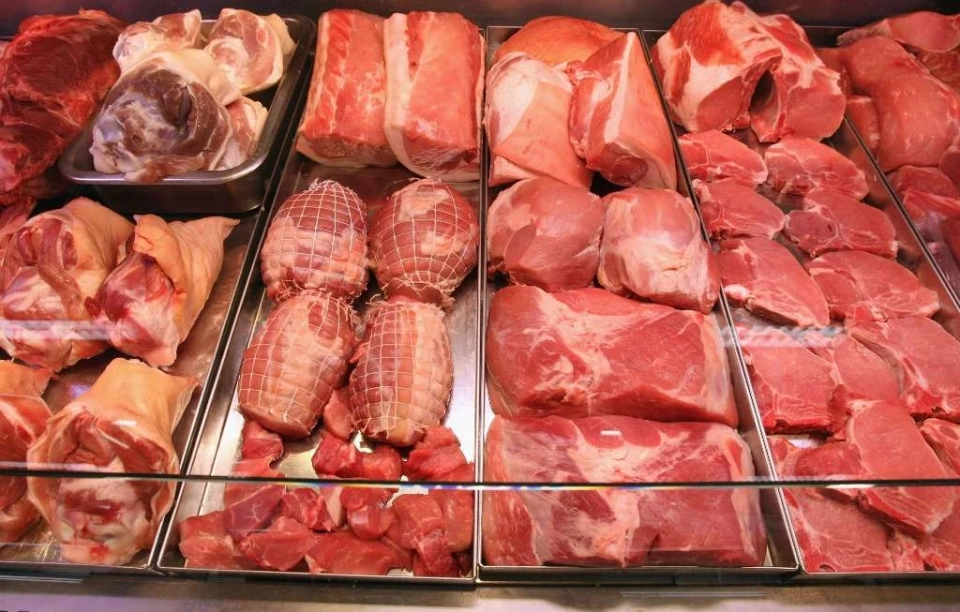"Raising livestock has become unprofitable." Why are meat prices rising and is it possible to stabilize them?
The prices for meat and meat products in Central Asia continue to rise, and experts attribute this to a multitude of factors, including serious issues in livestock farming and insufficient government management. Analyzing the situation in the markets, Azattyk Asia examines how authorities are responding to the price increase and what measures can be taken to stabilize them (without artificial price controls). Additional details can be found in the article by Azattyk Asia.
Meat is a key component of traditional Central Asian cuisine. It is hard to imagine dishes like plov, beshbarmak, manti, or samsa without it. However, for many residents of the region, purchasing meat is becoming unaffordable.
In Kazakhstan, over the past few months, the price of bone-in beef has increased by almost 20%. In the summer, in Almaty, a kilogram of meat cost 3,800 tenge (about $7), and now the price has reached 4,500 tenge (approximately $8.5). A year ago, a kilogram cost 3,200 tenge.
“FEEDING AND WATER PROBLEMS”
“There are fewer buyers, and people are running out of money,” shares a seller at the Almaty meat market.
According to him, the price increase is due to rising wholesale prices:
“Feed is expensive, and there is not enough water. Therefore, we buy at high prices from wholesalers.”
The situation is complicated by inflation, which reached 12.6% year-on-year in October, as well as the anticipated tax increases, which also affect the rental of trading places. All of this impacts the final cost for consumers.
Farmers believe that the price increase is a normal market reaction. Zhanibek Kenzhebaev from the Kostanay region states that official data on cattle population does not reflect the real situation — according to his estimates, there are fewer than 6 million in the country. In recent years, farmers have been forced to reduce their herds.
“Livestock farming has become unprofitable due to the high cost of feed, fuel, and veterinary services,” he notes.
Makhsut Baktybaev, head of the “Meat Union of Kazakhstan,” also speaks about the reduction in livestock numbers, which leads to a market shortage. Farmers are selling cattle below cost, and many are closing down, resulting in a decrease in the number of small businesses in this sector.
In his opinion, the real reason for the price increase lies in insufficient government management. Kazakhstan, being the ninth largest country by area, faces a shortage of pastures, as much land is privately owned and not utilized.
“We could become one of the largest beef producers, but for that, stable government policy is needed,” concludes Baktybaev.
The Ministry of Agriculture disagrees with the experts' assessments and claims that the price increase is due to rising feed and transportation costs. Additionally, high demand for the export of live cattle also affects domestic prices.
According to a government statement, meat production in Kazakhstan increased by 1.5% in the first half of 2025, reaching 529,000 tons, which they believe fully covers domestic demand.
The head of the Ministry of Agriculture, Aydarbek Saparov, also noted that he does not expect price increases before the holidays, stating that the average price of a kilogram of meat is about 3,249 tenge (just over $6).
STATE PRICE REGULATION: IS IT EFFECTIVE?
The rise in meat prices is also observed in other Central Asian countries.
In Kyrgyzstan, for example, authorities have introduced state price regulation, setting a ceiling on beef prices at 680 soms per kilogram (about $7.8) to stabilize the market.
Economist Iskender Sharshiev believes that price controls are not the best way to solve the problem. He emphasizes the need to create high-quality production.
Despite government measures, beef prices in the republic have not decreased. In Bishkek, bone-in meat is sold for 720–730 soms per kilogram.
The Kyrgyz Cabinet notes that the price increase is due to rising production costs and exports to neighboring countries. In response, the country has banned the export of large and small cattle to ensure its food security.
A group of officials suspected of corruption related to the export of cattle to Uzbekistan has also been detained in the country.
SITUATION IN UZBEKISTAN AND TAJIKISTAN
Uzbekistan is facing rising meat prices due to the increased cost of imports, as Kyrgyzstan and Kazakhstan have restricted their exports. In Tashkent, the price of boneless beef has reached 165,000 soums ($14), while bone-in meat costs 155,000 soums ($12).
Inflation has also impacted the situation, as beef prices rose by 25.2% in September. Internal problems for farmers, such as a lack of pastures and desertification, worsen the situation.
In Tajikistan, where dependence on imports is high, meat prices have sharply increased, and many residents cannot afford it. The minimum wage is about $100 per month, while beef is sold for 105 somoni ($11.4) per kilogram.
Recently, the government allowed the import of live cattle from Afghanistan, hoping to reduce meat prices. However, direct meat imports from this country remain banned due to a lack of veterinary control.
Additionally, Mongolia has expressed readiness to increase meat supplies to Tajikistan, but this has not yet been realized.
MEAT SHORTAGE IN TURKMENISTAN
In Turkmenistan, there is not only a rise in prices but also a meat shortage. In private shops in Ashgabat, the price per kilogram reached 155 manats ($44.2 at the official exchange rate). In state shops, where prices are lower, queues for frozen meat start at 5 AM.
However, the authorities do not acknowledge a severe food shortage, although social media reports empty shelves and low-quality goods.
Livestock farmers also report financial difficulties caused by rising feed prices and outbreaks of diseases among livestock.
DEVELOPMENT PROSPECTS
Experts believe that short-term measures, such as price regulation, do not address the root of the problem. Central Asian states need a comprehensive strategy for livestock development and cooperation for joint actions.
Makhsut Baktybaev from Kazakhstan emphasizes that to stabilize meat prices, production must be increased by providing farmers with access to land and financing.
In Uzbekistan, measures to support livestock farming have already begun, including simplifying meat imports and reducing the time required to obtain permits.
Toleutai Rakhimbekov, an agricultural expert, believes that uniting farmers into cooperatives will help reduce costs and increase production efficiency.
Meanwhile, Kazakhstan has developed ambitious programs to increase agricultural production, but so far the results leave much to be desired.
Read also:
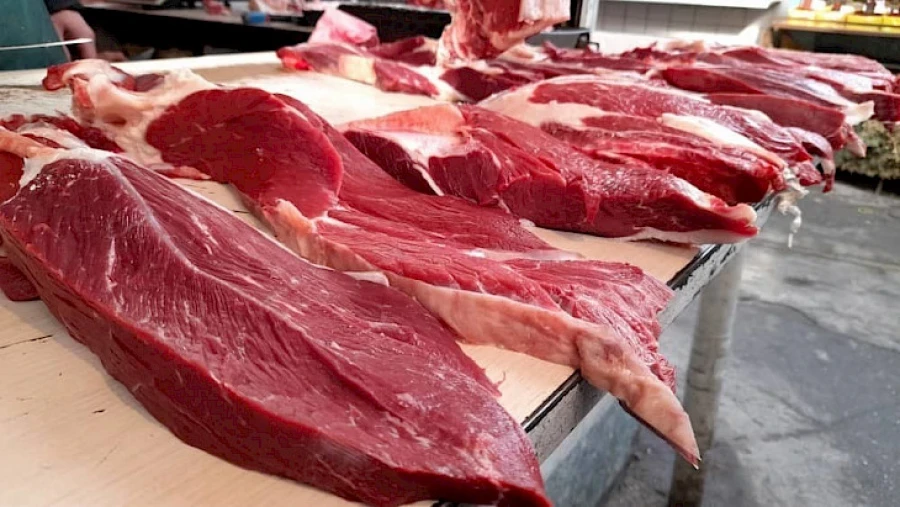
Expert: Meat Prices in Kyrgyzstan Could Become Simply Astronomical
But Kyrgyzstanis will not give up meat According to economist Arslan Omurzakov, meat prices in...
"Meat, Diesel, Celebrations". Why Cows, Horses, and Sheep Are Becoming More Expensive in Kyrgyzstan
In Kyrgyzstan, meat continues to be quite an expensive product in the market, yet the demand for it...
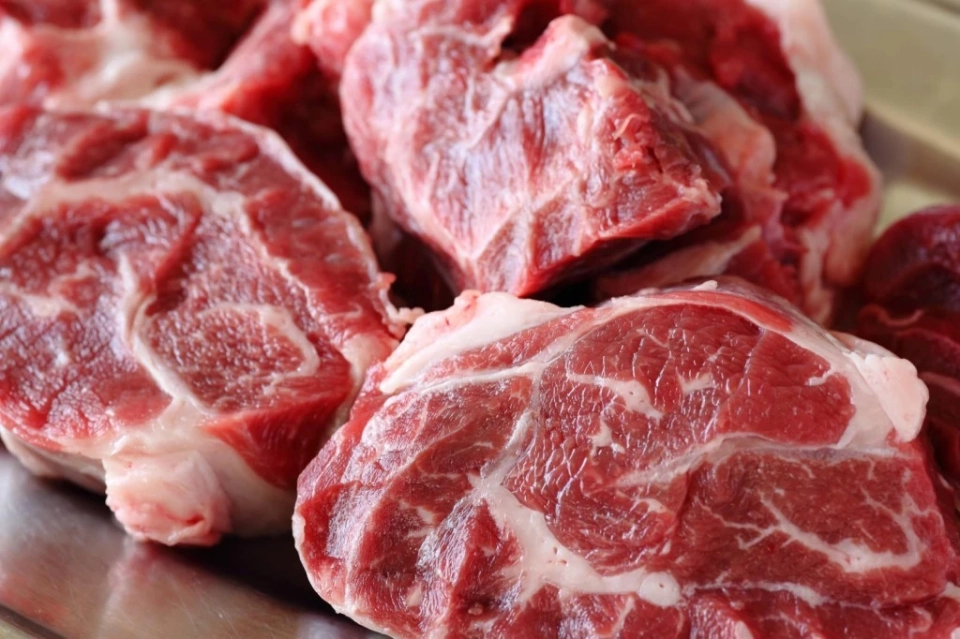
How Soon Will Beef in Kazakhstan Become Unaffordable for Everyone
Beef prices in Kazakhstan have sharply increased, and this has been noticed by everyone — from...
In the city of Karakol, meat prices have risen: Sellers explained why
In Karakol, located in the Issyk-Kul region, there has been an increase in prices for beef, lamb,...
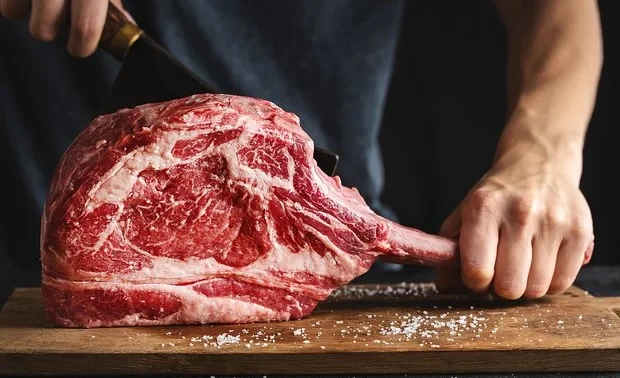
Global beef prices have risen to their highest level since 1960
Globally, the price per kilogram of beef has exceeded seven dollars for the first time, as...
In the city of Osh, beef prices have increased by 70 soms in recent days: Sellers named the reason
In Osh, the price for 1 kg of beef has reached 750 soms, which is an increase of 70 soms over the...
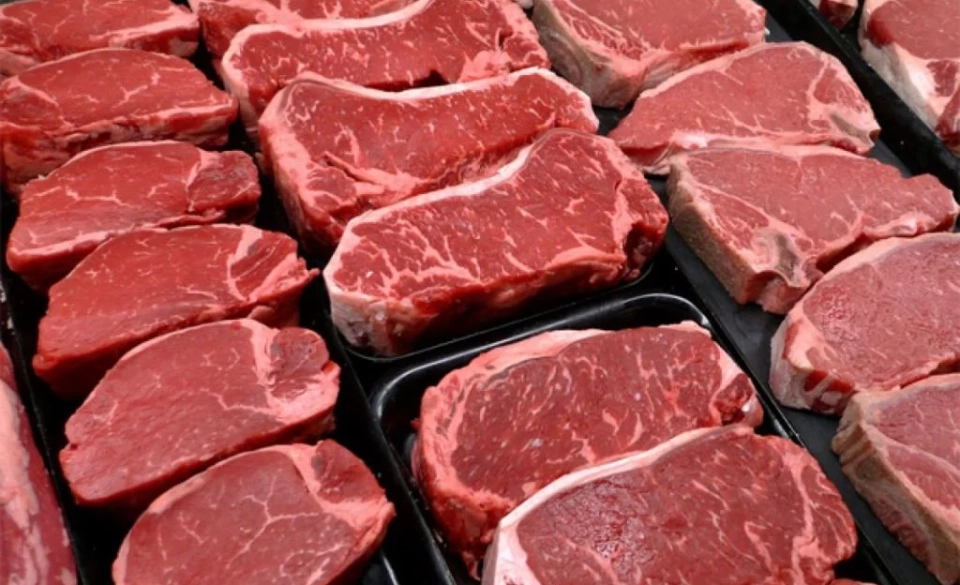
Tashiev: If meat costs more than 700 soms, local officials will be held accountable for this
The Deputy Chairman of the Cabinet of Ministers and head of the State National Security Committee,...
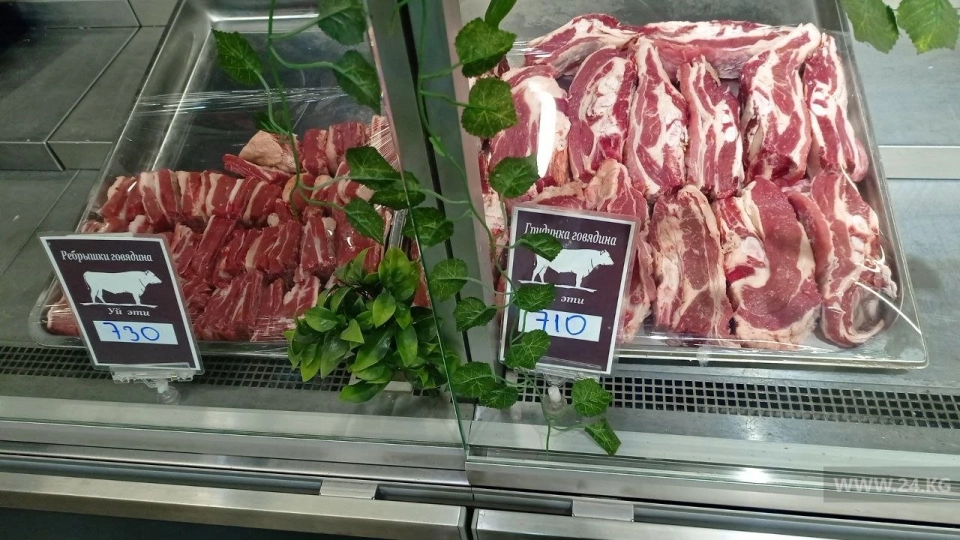
Will meat in Bishkek rise in price again? State price regulation ends on November 12.
In Kyrgyzstan, the temporary state regulation of meat prices will end on November 12, which was...
In the city of Uzgen, the sale of meat at inflated prices was discovered
In Uzgen, several sellers who were selling meat at prices exceeding the established norms were...
"You Will Be the Ones to Answer!" Tashiev Warned Officials Due to Rising Meat Prices
Kamchybek Tashiev, Deputy Chairman of the Cabinet of Ministers and Head of the State National...
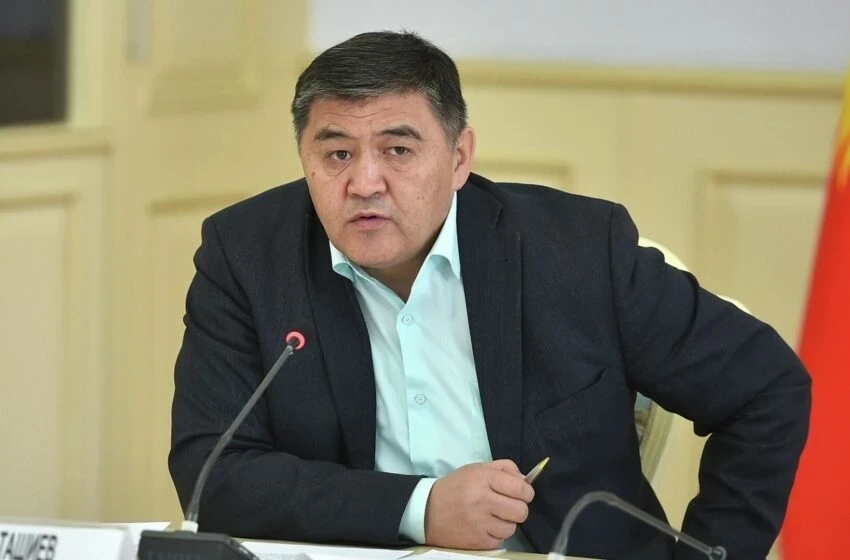
Tashiev: Meat Sellers Unjustifiably Inflate Prices
“Both sellers and buyers at the market are reporting this situation to me....
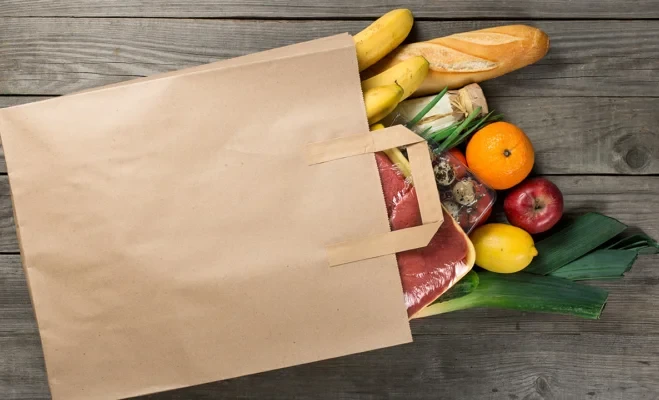
Kyrgyzstan Holds Back Food Price Increases: Key Measures Named
The Ministry of Water Resources, Agriculture, and Processing Industry has informed about the...
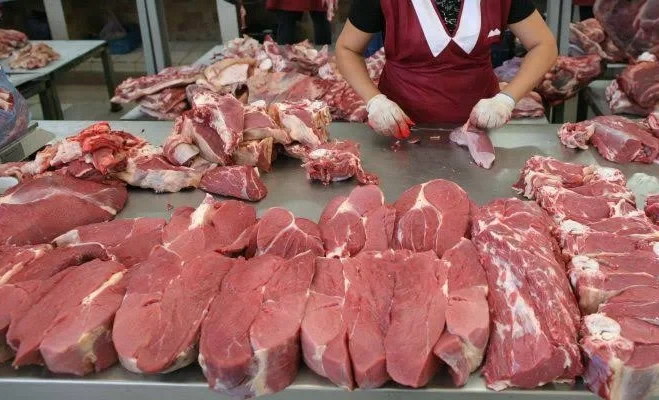
In Kyrgyzstan, the temporary state regulation of meat prices has been extended.
The decision has been made in Kyrgyzstan to extend the temporary state regulation of prices for...
FAO: Global Food Prices Decreased in October
According to information presented in the press release from the Food and Agriculture Organization...
Kyrgyzstan Fully Provides Itself with Beef and Lamb, - Ministry of Agriculture
- According to the Ministry of Water Resources, Agriculture, and Processing Industry, Kyrgyzstan...

Ministry of Agriculture of Kyrgyzstan: The situation in the food market remains stable
According to the Ministry of Agriculture, the stable situation in the food market of Kyrgyzstan is...
Ministry of Agriculture: The situation in the food market remains stable
The Ministry of Water Resources, Agriculture, and Processing Industry of the Kyrgyz Republic...
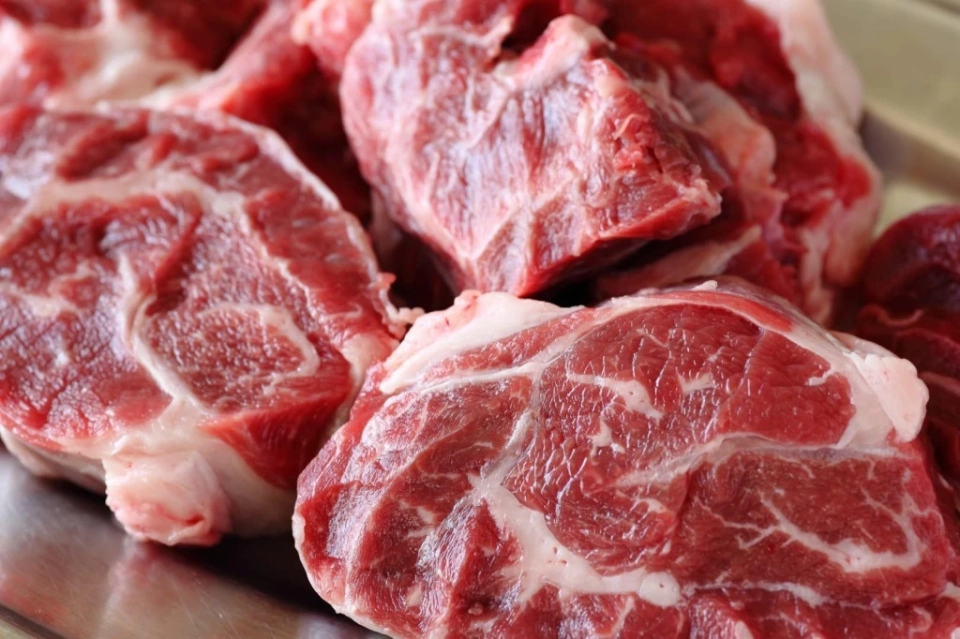
The Ministry of Agriculture declares: Kyrgyzstan is fully self-sufficient in beef and lamb.
According to the latest data, the validity period of state price control on meat (including beef...
In Kyrgyzstan, state regulation of meat prices has been extended
According to the Ministry of Economy, this decision is aimed at maintaining the stability of the...
How much does the last strawberries of this season cost in the markets of the Jayil District?
In the markets of the Jayil district, the last batch of strawberries for this season is being sold...
State regulation of meat prices in Kyrgyzstan extended until December 31, 2025
The press service of the Ministry of Economy announced the extension of temporary state price...
Global food prices fell by 1.6 percent in October
According to the Food and Agriculture Organization of the United Nations (FAO), global food prices...
Central Asia Among Leaders in Warehouse Infrastructure Growth Rates - EDB
According to the Eurasian Development Bank, Central Asia and the South Caucasus are leading in the...
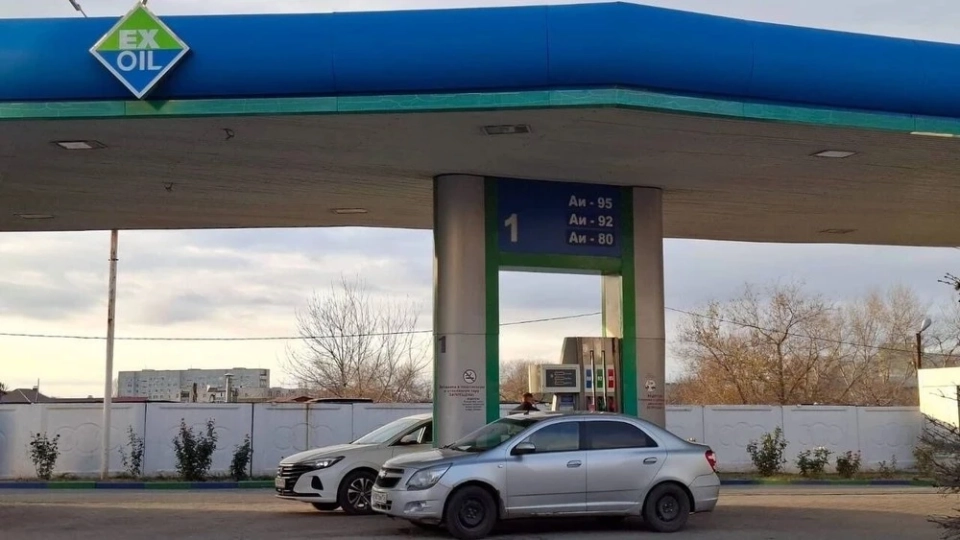
In the Orenburg Region of Russia, gasoline prices continue to rise, car owners are switching to buses, - Media
Residents of the region report a significant increase in expenses for refueling cars compared to...
What is the price of "white gold" in Nooken this year?
This year, in the Nooken district of the Jalal-Abad region, the price for 1 kilogram of cotton,...
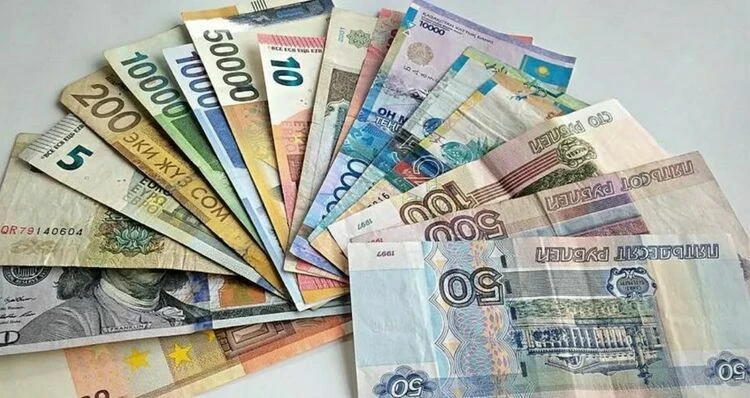
The dollar is stable, other currencies continue to rise. Exchange rates for October 29.
According to information provided by the National Bank of Kyrgyzstan and exchange offices in...
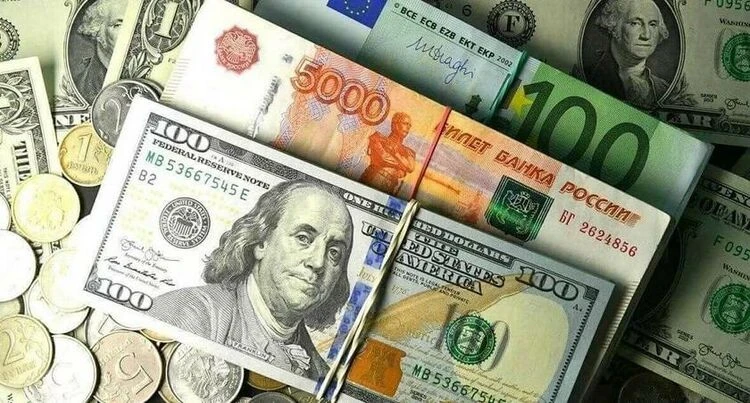
The Ruble and Euro Continue to Decrease in Value. Exchange Rates on October 24
Photo from the internet. The Russian ruble is experiencing instability — after a recent rise, it...
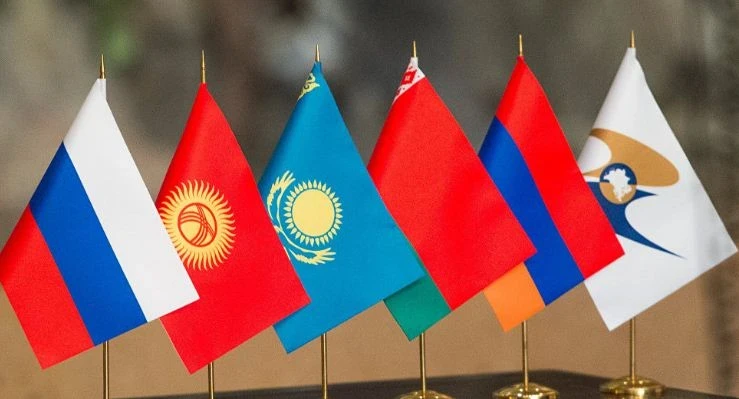
EAEU Agricultural Producers Increased Prices for Their Products by 10.2% in 9 Months
From January to September 2023, agricultural producers in the EAEU, according to the EEC,...
Up to 1,000,000 soms earned by residents of an Issyk-Kul village from growing this plant — how much is it worth this year
In the Ak-Suu district, located in the Issyk-Kul region, the price of valerian root has reached 70...
API error: HTTP 429
API error: HTTP 429...
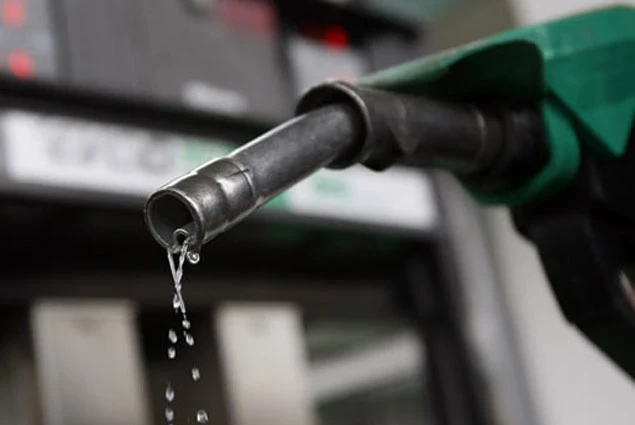
Fuel prices are rising — we can no longer hold them back, — Chairman of the State Antimonopoly Agency of Kyrgyzstan
On October 14, 2025, the chairman of the State Agency for Antimonopoly Regulation under the...
Kyrgyzstan Increases Production of Eggs and Poultry Meat, - Ministry of Agriculture
The volume of egg and poultry meat production in Kyrgyzstan is showing positive dynamics. On the...
Prices for National Bank Gold Bullion Bars Are Rising Again
According to the National Bank of Kyrgyzstan, there is an increase in prices for the buyback of...
A Food Fair is Taking Place in Kadamzhai
The city of Kadamjay on A. Zhalilov Street is hosting a food fair. At the event, buyers can find...
The main oil-producing region of Russia is experiencing a fuel crisis
The Khanty-Mansi Autonomous Okrug (KMAO) is a key region of Russia in the field of oil and gas...
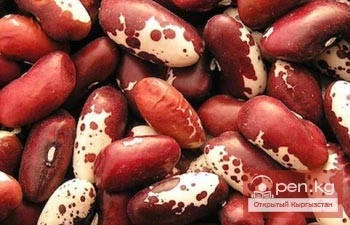
Talas Farmers Sound the Alarm Over Falling Purchase Prices for Beans
According to the Talas regional state administration, the price of beans currently stands at 28-30...
Kyrgyzstan Fully Provides Itself with Beef and Mutton
According to information provided by the Ministry of Water Resources, Agriculture, and Processing...
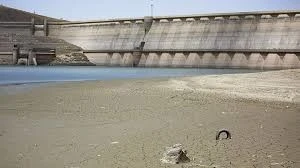
Tehran Faces Evacuation Due to Water Shortage
In Iran, especially in Tehran, the situation with water resources has reached a critical point....
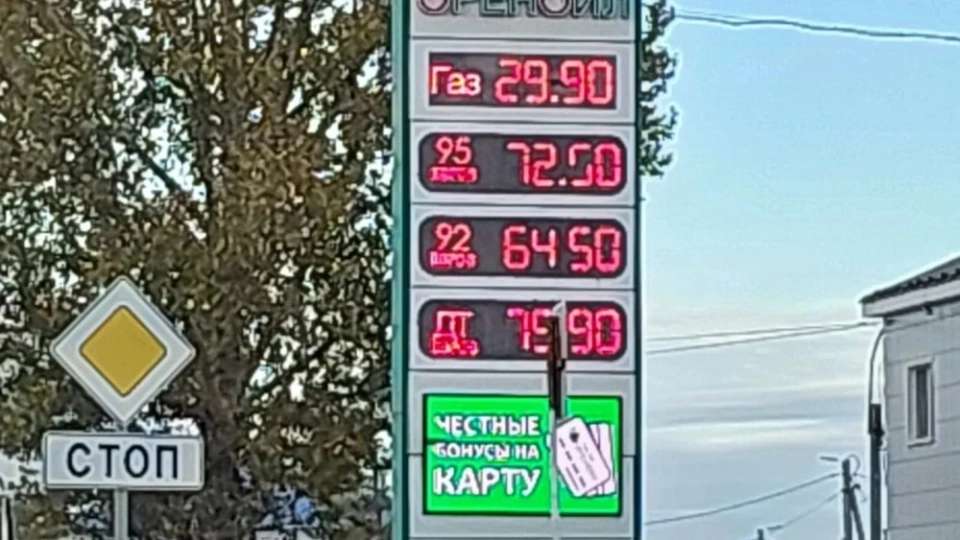
In Russia, gasoline prices are rising; experts link this to reduced oil refining and logistics issues.
Motorists in various regions of Russia are facing rising gasoline prices. Each week, refueling...
The Economy of Kyrgyzstan Will Grow Faster than All Central Asian Countries, but the Risks Are Too High
The IMF has presented its growth forecast for economies around the world, including the Middle East...
The rise in fuel prices has intensified inflationary processes in Kyrgyzstan, - Ministry of Economy
- According to information from the Ministry of Economy and Commerce, the consumer price index,...
In Suzak, farmers are satisfied with the prices for the autumn carrot harvest
Farmers in the Suzak district are actively planting carrots, using them as an alternative crop...
